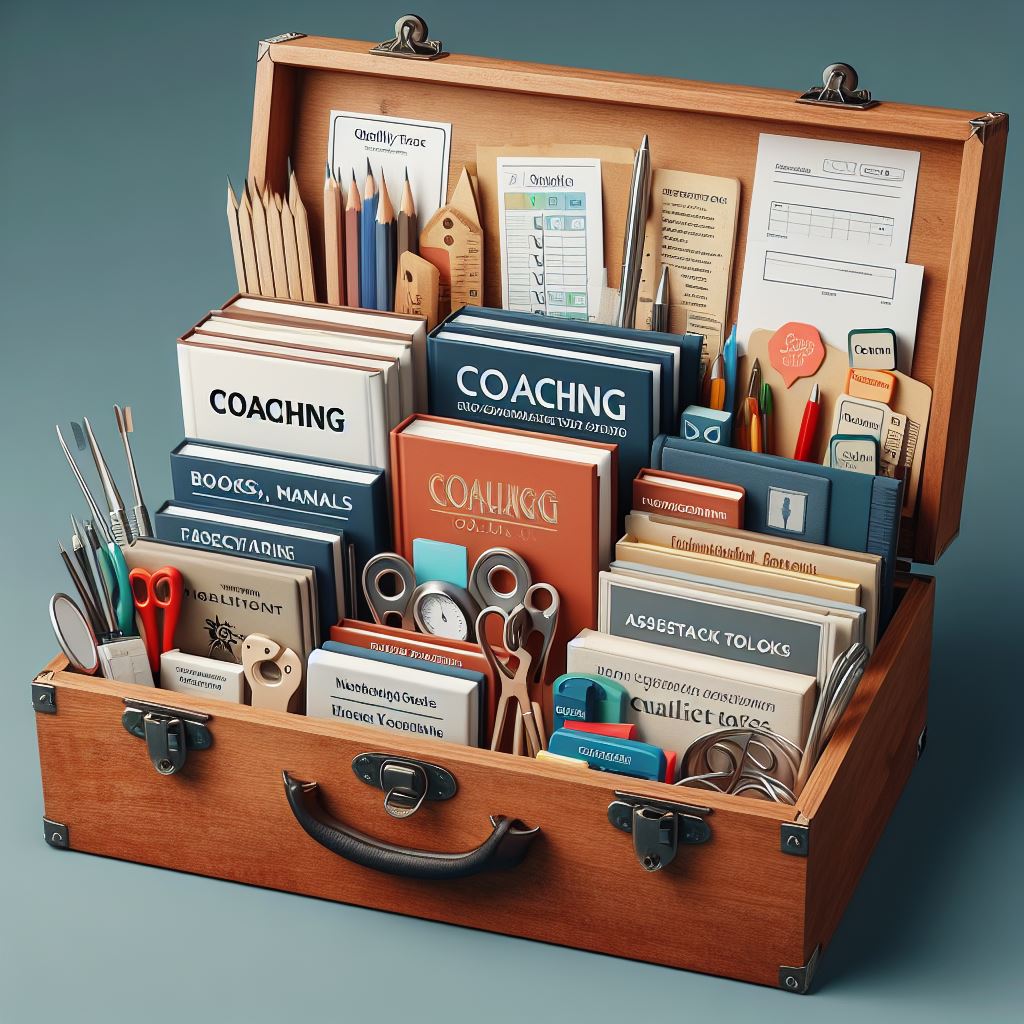
The Quality Coach can be equipped with several tools that can assist him in exercising this posture.
These tools can be used for individuals, the whole team, various teams in the organization depending on the situation.
Some of the tools include:
Mastering the Art of Open-Ended and Powerful Questions
Mastering the art of asking open-ended questions is a crucial skill for effective communication and understanding. To enhance your questioning techniques, consider adopting some helpful tips.
Start by embracing powerful questions that lead to awareness and reflection.
Transform your questions and avoid asking for explanations, avoid the “why…” Because it leads to a justification and can “block” people from opening up
Examples:
How will you measure success?==> What is the most important aspect in terms of quality?Why did you fail?==> How could we have done better?
Structure the order of your questions
Use some logic to better understand if your team is aware of what they actually want to achieve
1) SOON FUNNEL
I usually use the SOON funnel, a helpful way to visualize and have a direction during your conversations with people or teams you are coaching
- SUCCESS: What does success look like? What do you hope to achieve with this project? What would tell you you’ve reached your goal? What is your definition of “finished”?
- OBSTACLES: What are your obstacles? What is preventing you from achieving your goal or success? What is holding you back? What concerns you most about it?
- OPTIONS: What are your options? What have you tried so far? Would you like to brainstorm ideas? If you could do anything you wanted, what would you do?
- NEXT STEPS: What are the next steps to put in place? What action will you take? What is the first small step? What’s an even smaller step you can take?
Examples related to Testing:
- SUCCESS: How will you know that you have finished the test of this US?
- OBSTACLES: What’s stopping you from doing the tests you want? What is preventing you from covering the risks you identified with relevant tests?
- OPTIONS: As per your test strategy execution, what test varieties have you already done?
- NEXT STEPS: What is the first step that you need to take to start your testing?
2) The 5 STEP Coaching Model
Referring to Sara Canaday Model, you can be inspired by this template and get an idea about the steps that you need to take in order to build better questions and have a good conversation with the team you are coaching. Also take notes in the observations column while practicing active listening.

Practice Active Listening
Active listening is crucial to leveling up your coaching; it goes beyond simply using your ears. You need to understand the behind-the-scenes situation by noticing what people are feeling about what they are saying and how they are interacting together during a meeting or while working together as a team …
It’s a skill that requires frequent practice because it contributes in various ways:
- Building Trust: When team members feel heard and valued, they’re more likely to collaborate effectively.
- Valuing Team Members’ Opinions: When you listen attentively, you show your team members that their opinions matter. This fosters a culture of inclusivity and empowers team members to contribute their ideas and perspectives.
- Enhanced Problem-solving and Improved Communication: By truly understanding the needs and challenges of your team, you can tailor your approach and guide them towards effective solutions.
It may seem simple but to properly get started, I recommend those practices:
Pay attention and have a focused mindset with what’s being communicated
- Use non-verbal cues such as nodding and maintaining eye contact to demonstrate attentiveness.
- Take notes during conversations to help retain information and demonstrate your commitment to listening.
Withhold judgment, understand and support the team you are coaching
- Practice empathy by putting yourself in the speaker’s shoes and considering their perspective without bias.
- Challenge any preconceived notions or assumptions you may have about the speaker, or the topic being discussed.
Observe and reflect
- Use reflective listening techniques such as mirroring or paraphrasing to convey empathy and validate the speaker’s perspective.
- Offer feedback in a constructive manner, focusing on observations and impacts rather than personal judgments.
Clarify using open ended questions to remove any possible doubts and unclarity
- Seek clarification on technical terms or concepts that you may not be familiar with to ensure comprehension.
- Encourage team members to elaborate on their ideas or provide examples to deepen understanding.
Summarize and get the team involved to offer their additions or adjustments
- Summarize key takeaways or action items at the end of meetings or discussions to ensure alignment and clarity.
- Capture and document important insights or decisions reached during conversations for future reference and get the team feedback.
Share relevant ideas and valuable experiences
- Offer insights or best practices based on your expertise to contribute to the conversation in a meaningful way.
- Encourage a culture of knowledge-sharing within the team, where everyone feels empowered to contribute their expertise and learn from one another.
Conclusion
Those are some tools that could help you with your quality coaching, definitely there are other facilitation tools and techniques that you can use and adopt them to your own context.
The good thing is that those tools could also be combined, like using active listening with the SOON funnel or using powerful open questions that raise reflection while monitoring the direction via the 5 STEP Coaching Model or any other possible combination that responds to your situation.
I’ll share more tools in future blog posts, but I’m also curious to hear what’s your favorite quality coaching toolbox ?

 English | EN
English | EN 